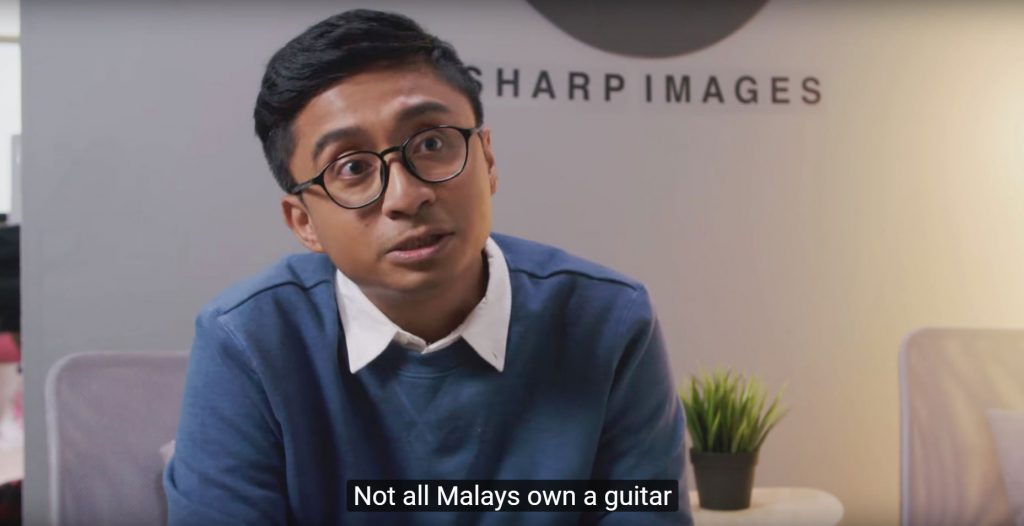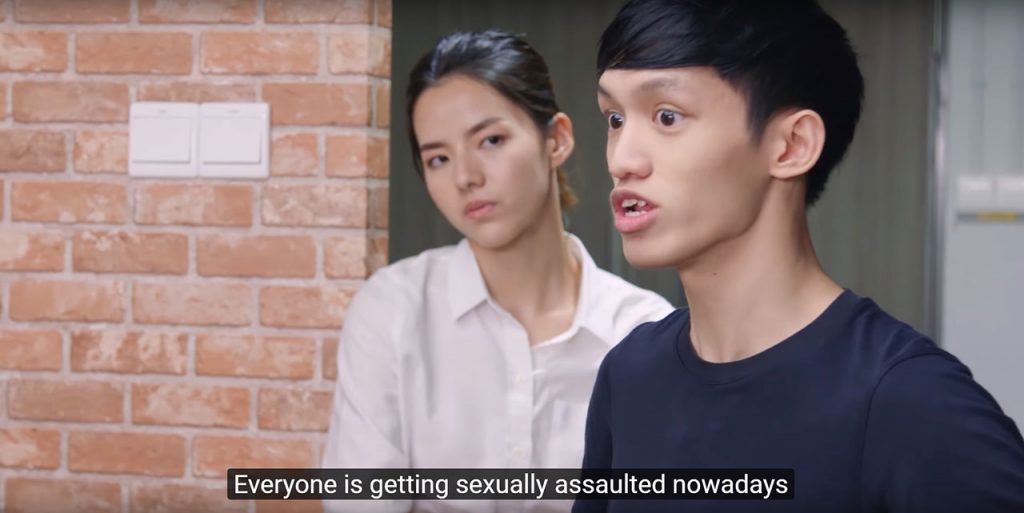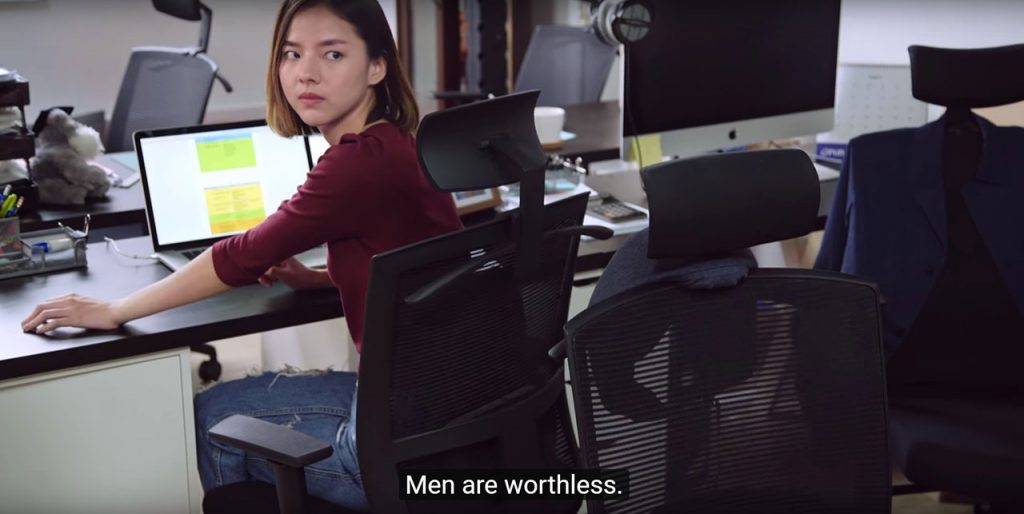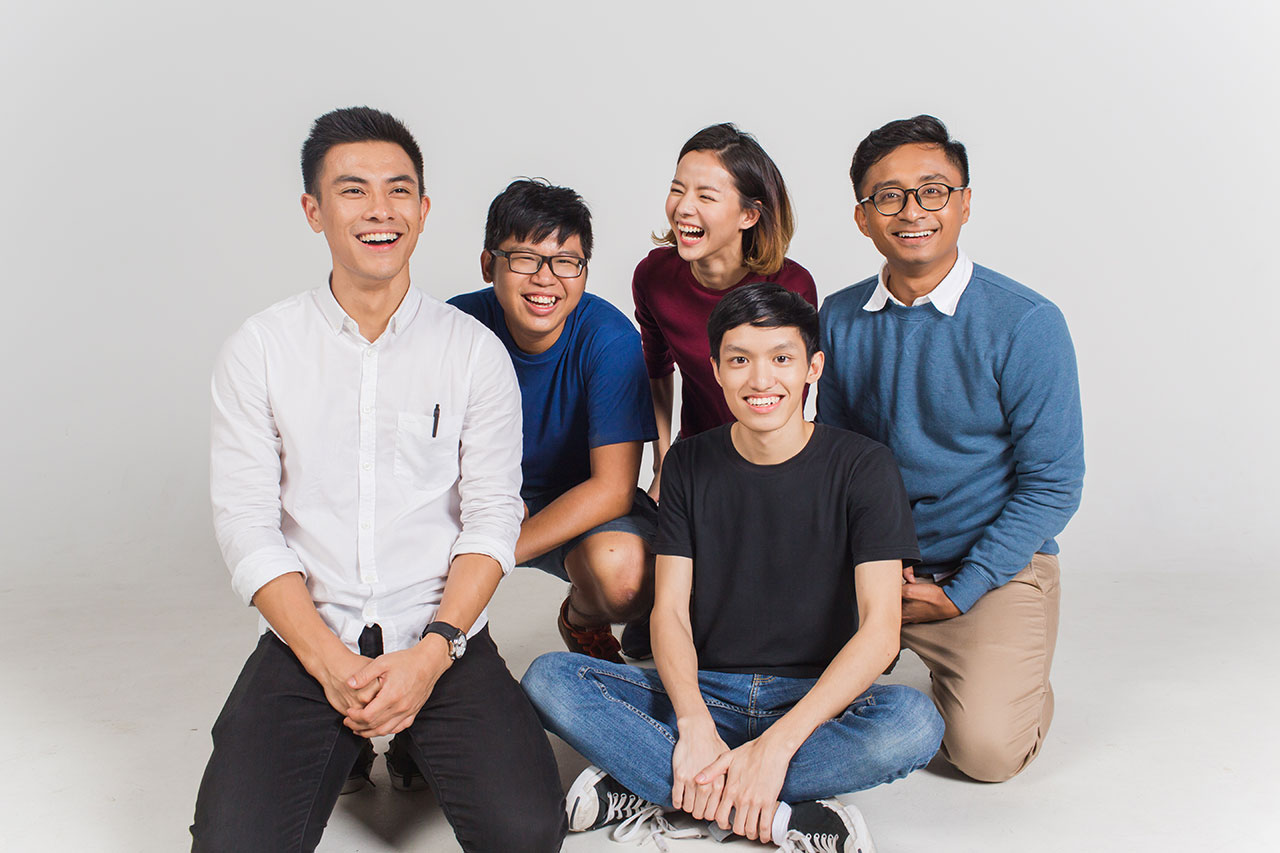Average Guys, a Singaporean produced web series that launched on YouTube this month, explores this outrageous group dynamic. And it’s hilarious.
Shot in a mockumentary style that fans of The Office and Parks and Recreation will be familiar with, this show, with its witty jokes and references to everyday Singaporean life, has quickly become an Internet sensation.
Yet showrunner Cheng Chai Hong, a filmmaking graduate, has preferred to stay behind the camera and out of the limelight.
When I finally manage to convince him to come out of hiding to discuss over coffee the fundamentals of storytelling and the challenges to TV production in Singapore, he reveals that he originally never thought of doing comedy.
Surprise, surprise.
Benjamin: Let’s address the elephant in the room: Is the criticism that Average Guys is too similar to The Office valid?
Chai Hong: The criticism is valid. I’m not shy to admit that mockumentary shows like The Office and Parks and Recreation were the inspiration, as I grew up liking that sort of humour. We did try to pull Average Guys away from the style of those shows. But I think at some point we also realised that being compared to them was inevitable.
Early test audiences already gave us that feedback, but they also prefaced it by saying being similar to The Office is not a bad thing.
So on the contrary, having both our show and The Office mentioned in the same sentence means we’re doing something right.
Creating something that is completely fresh is not gonna fly in Singapore. Also, I felt there was a ready audience for the kind of comedic material seen in The Office.
B: Does everything then have to be a remix in order to be successful?
CH: Honestly, in this day and age, there’s nothing that is completely original. If you claim a thought as original, chances are it has been done before. But the devil is in the details. If you copy something without really understanding what attracts people to it, you do it poorly and it’s really overdone, it’s just a cliche.
But when you add the details that matter and market your ideas as something else, at this point people can say, “Ah, this feels like The Office” yet they can still clearly understand that Average Guys is something separate. As the show develops further, you can’t easily say that this is “The Office: Singapore”. The characters are different, the setting is different. Our main idea was to base the concept around a video production house and that opened up other opportunities in terms of funny videos.

CH: The flaw in Singapore’s content in general is where the money comes from. Funding is tied up with the regulatory authorities, which means that anyone who wants to create shows for free-to-air TV and long-form productions, which require state funding due to production scale and costs, has a vested interest in staying in the authorities’ good books. This includes us as well.
But it’s also bigger than money. The authorities’ mindset is already so conservative in nature. It’s not that they have bad intentions but they just don’t move with the times. They are very insular.
For sure, I’m painting things in broad strokes. I don’t think everyone in the government thinks the same way. But the trickle-down effect is that people can’t push boundaries. And after a certain point, even the people who attempt to push the boundaries get jaded. I might eventually go that way as well given enough time.
B: How does a creator strike that balance between receiving money from the government while still pursuing a creative vision?
CH: I don’t know. I don’t have a say in how this balance should be set, because in this power dynamic I’m the little guy. I have no say at all. Somewhere, somehow, someone in the regulatory authority has to be able to appreciate that Singaporeans are ready for more. And that they are ready to embrace alternative views without damaging the social fabric.
If you look deeper, the fundamental problem is that we don’t have a big population in Singapore. And if you purely look at things from a profit-making point of view, and create things for a local market with the sole intent of making money, you are never going to make enough money to justify making anything at all.
It’s not a bad thing that the government is the only one that can provide the money. Those are the constraints that we have to work with in Singapore. But the player that can change anything is the government, not us. They need to acknowledge that the world has moved on.
Why are we constantly saying that different races cannot mingle on-screen with unadulterated interactions, or even appear together in a single programme speaking in their mother tongues? Why are we still segregating the different races?
The kind of racial humour that I put in the first episode (about guitar players being predominantly Malay) would never fly in a government-funded programme. I’m very sure it would have been vetted out in the writing stage. The authorities would misconstrue the joke as a harmful stereotype which should not be portrayed on television.

CH: I think good storytelling pushes boundaries and needs to say something. If you’re not saying anything you might as well not make anything. You’re just filling airtime.
Consider the Brothers Grimm fairytales and Aesop’s fables. If they had never talked about the perils of doing harm to one another or society crumbling, would you ever be able to learn the lesson of doing good?
And that’s what Singapore keeps trying to ignore. The authorities mandate that we cannot show ugly things, but only show how to do good. That’s not how people learn lessons. That’s not storytelling, it’s propaganda, and not even the effective kind.
OB markers are everywhere, and simply push producers and writers to paint an idealistic picture of everyone living in harmony with no differences. If this continues, you can’t tell good stories. You can’t do anything.
This will have a negative trickle-down effect. Everything will be extremely safe and sedated, and pokes fun at nothing in general. That’s why you have all this banal content on TV and social media.
B: Is pitching Average Guys to a network an option?
CH: It is. Unfortunately we don’t have the contacts, but we’ll be attending the Asian Television Forum next month, so fingers crossed.
The ideal platform is something which has a wider reach than Singapore’s, like Netflix, which simply fund material based on whether the quality is good or it has commercial appeal.
Average Guys in its current form isn’t my ideal vision because the runtime is too short. I’ve always wanted to make it a proper TV series with episodes that run for at least half an hour.
Problem is, we don’t have the track record to pitch it to even places like Mediacorp to get it made. They might like the idea, but still not commission us because they cannot trust us to see the project through.
Even if Mediacorp says yes, we still don’t have the clout to retain full editorial control. We cannot simply tell them that we want to keep a line because we think it’s funny. I don’t have the right to say, “I think I’m right, you guys are wrong”.
Singaporean productions do not have to be constrained by only local appreciation, like Jack Neo’s movies. Good storytelling and quality content can travel, regardless of country of origin.
B: What do Singaporean audiences like, and do you have to tailor your humour to their preferences?
CH: I have no answer to that question. Comedy on its own is really a juggling act. I have no idea what you might find funny, or the next person standing beside me might find funny.
When the first episode came out, it was really a giant relief to actually see that people find the show funny. We were so worried that the pilot episode would just tank.
All I can do is write from personal experience. Hopefully that will be relatable for the audience.

CH: It was pure dumb luck that we launched the episode at the same time as all those stories about Harvey Weinstein were breaking. That the stories just kept coming in even before we launched on Wednesday was jackpot for us.
The best comedy comes from people having an opinion in stark contrast to everything else. That’s what we wanted to do with Average Guys, to say things that we cared about––sexual harassment, feminism, gender equality, etc.
Same thing with the racial joke about Malays. I didn’t write Fauzi’s character purely as a joke. I wrote it because I feel strongly about it. It’s a racial stereotype that needs to be put to bed.
We need to bring topics like these into the open.
I can’t wait for the day when this kind of humour isn’t funny any more, even though it might put me out of a job because I have to find something else to make jokes about.
B: May stands out as a character not just due to her gender, but her man-hating personality which may seem a little jarring. Why was she written as such?
CH: I just enjoy cartoon violence, there wasn’t a good reason for it (laughs). My comedy style is frivolous.
May’s character essentially is a way of us making fun of ourselves. I deliberately wanted May to look like a female character that was inserted as an afterthought.
At the same time I wanted someone who was a bit more complex and avoided the typical female characterisation route.
But I also wanted to create a man-hating woman who is just completely at odds with her colleagues, because that creates a lot of conflict just between herself and the other characters.
May doesn’t like guys and thinks guys are idiots, but then here she is working with this bunch of idiots because of work and the reality of the industry. At some point, I hope to show that she’s just as much an idiot as the rest of the team.

CH: I never wanted to do comedy (laughs). When I came out of film school, my first ambition was to be a serious filmmaker making genre material.
Now, I really want to make a crime show in Singapore.
And that is my other pet peeve with storytelling in Singapore on local TV. We can’t write things based on actual reality because it is so strictly policed.
Whenever I switch on the TV or go to Toggle and see these police or crime dramas showing SWAT teams storming houses in Singapore, I’m stunned because this never happens! It’s unbelievable.
Singapore crimes shows should feature murders that go unsolved, or policemen who have no idea how to handle their guns––this is something that Singaporeans do want to watch. This would make for good drama. You don’t need heightened drama with things we don’t have, like explosions and gunfights.
On that note, this drama could also highlight the apathy of Singaporeans. The average Singaporean would never know if their neighbour died until they smelled the rotting corpse. They may not even recognise their neighbour. That’s sad to watch and that’s real drama that would intrigue Singaporeans.
But Singaporean broadcasters would not allow this sort of thing to be aired. They will say we are painting a poor impression of our police. But that’s how the reality in Singapore is!
Average Guys is available on YouTube and Facebook, with new episodes every Wednesday.






